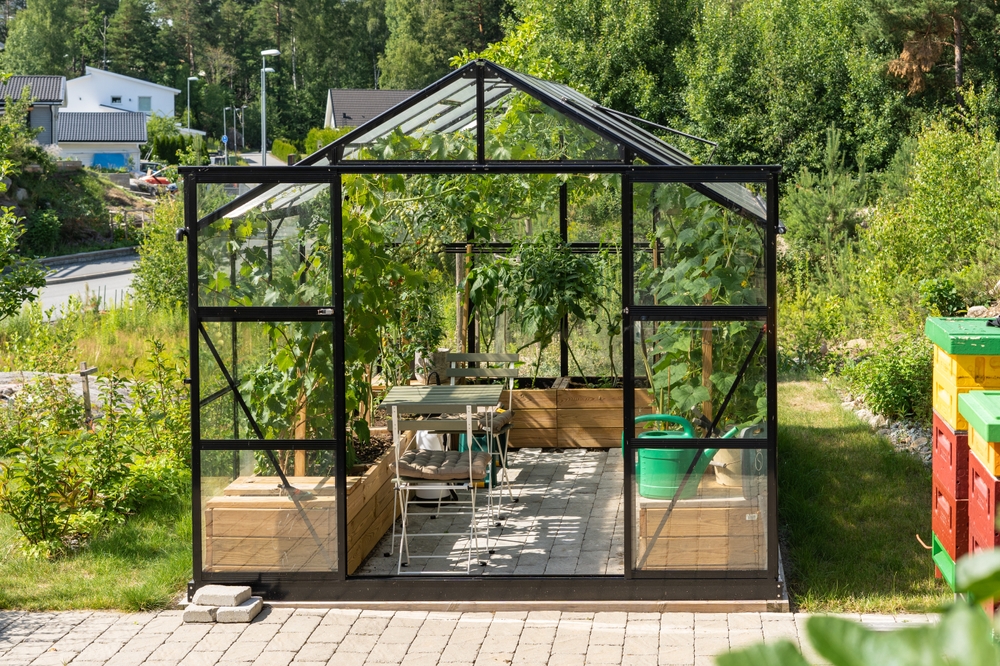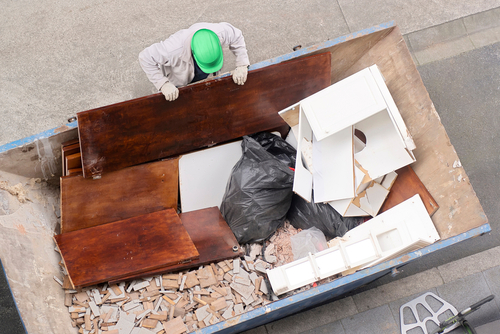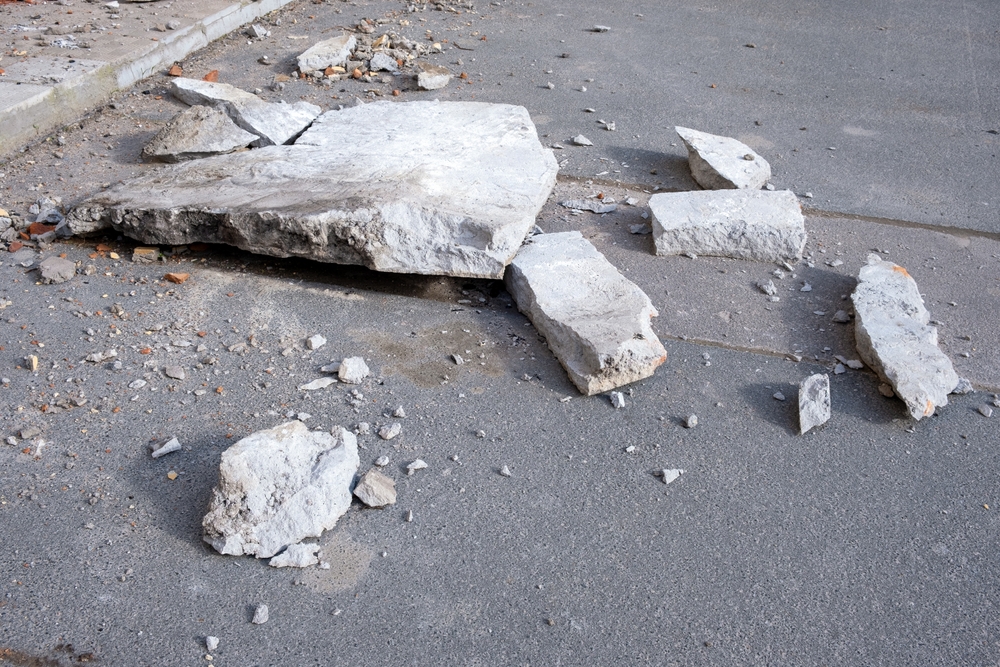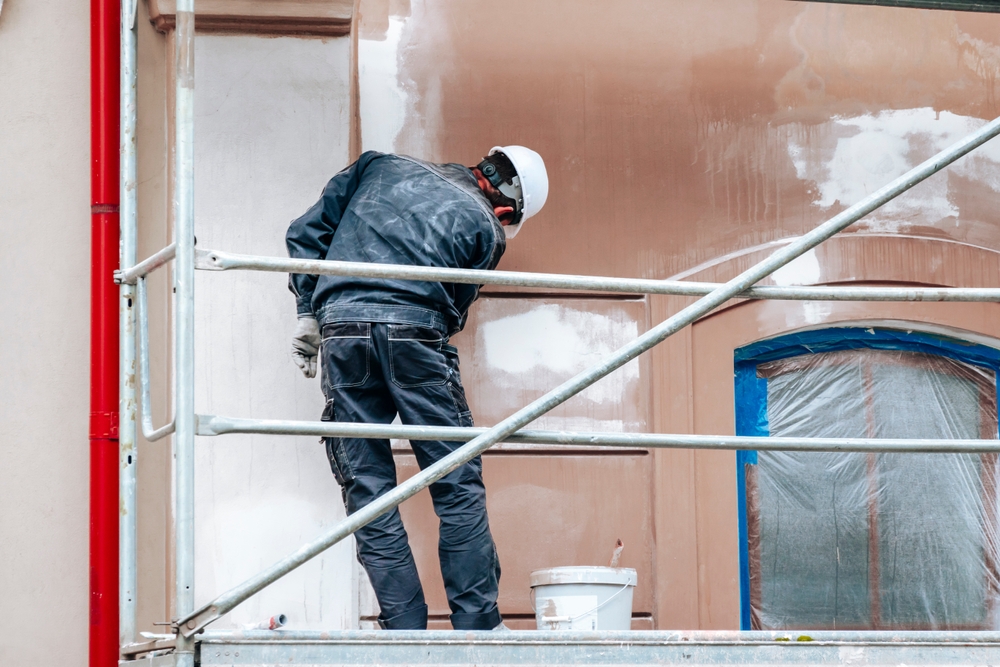March 21, 2024 - Benjamin Ehinger
Construction Garbage Containers: An Essential Guide to Efficient Debris Management
CALL NOW 844-762-8449
Effective waste management is a critical component of any construction project, whether it’s a minor home improvement task or a grand commercial development. Selecting the appropriate construction garbage containers ensures a clean, safe, and efficient worksite. Knowing the size and type of container needed is the first step, as different phases of construction will generate various kinds of debris. Partnering with a reliable waste service like Waste Removal USA for a construction dumpster rental can streamline the process, offering you the convenience to dispose of material as work progresses.
Managing construction debris is not just about disposal but also about compliance with local regulations and environmental responsibilities. When you choose the right construction dumpster rental, you not only keep your site organized, but you are also ensuring that waste is handled and recycled wherever possible. Services offered by Waste Removal USA provide an array of dumpster sizes and rental periods, tailored to suit your project’s specific requirements and budget constraints.
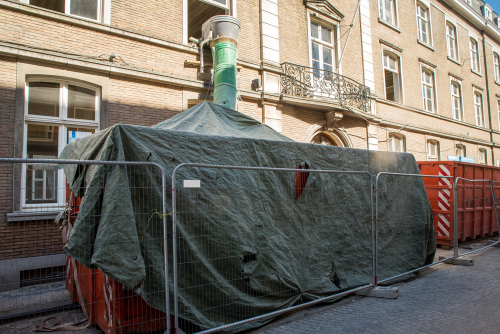 Understanding the full scope of costs involved in renting construction garbage containers is crucial for your budgeting. Your expenses will mostly revolve around rental costs, disposal fees, and potential overages related to the weight limits of your chosen container.
Understanding the full scope of costs involved in renting construction garbage containers is crucial for your budgeting. Your expenses will mostly revolve around rental costs, disposal fees, and potential overages related to the weight limits of your chosen container.
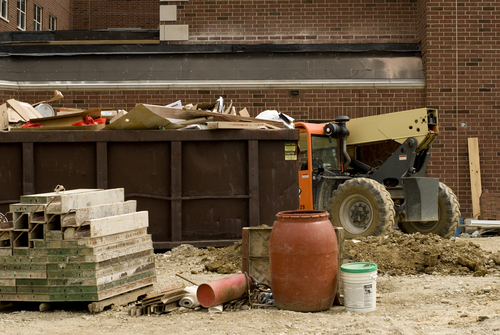 When managing construction waste, you must consider both environmental regulations and safety measures to ensure proper disposal. Noncompliance can lead to significant penalties and pose risks to health and the environment.
When managing construction waste, you must consider both environmental regulations and safety measures to ensure proper disposal. Noncompliance can lead to significant penalties and pose risks to health and the environment.
Key Takeaways
- Choosing the right construction garbage container is essential for maintaining site cleanliness and efficiency.
- Waste Management USA offers versatile dumpster rental options tailored to diverse construction projects.
- Proper waste disposal ensures compliance with regulations and promotes environmental responsibility.
Understanding Dumpster Rental
Renting a local dumpster is a practical solution for managing waste during construction projects or large clean-ups. Selecting the right dumpster size, understanding the rental period, and knowing the service areas are crucial for an efficient rental experience.Different Dumpster Sizes
When choosing a dumpster rental, it’s important to select the size that best fits your needs. Common sizes include:- 10 yard dumpster: Ideal for small projects like a one-room cleanup.
- 30 yard dumpster: Suitable for medium to large projects, such as major home renovations.
- 40 yard dumpster: The largest option, perfect for commercial construction projects.
Rental Period and Scheduling
Your rental period will vary depending on the project scope. Most companies offer flexible scheduling options, including:- Short-term rentals for quick projects.
- Extended rentals for ongoing construction.
Service Areas
Service areas for construction garbage containers may differ between providers. Confirm that your location is covered and inquire about potential delivery fees. It’s essential to check with local regulations for proper waste disposal and comply with all guidelines.Construction Debris Types
When managing construction projects, you’ll encounter a variety of debris types. Sorting and disposing of this waste properly is crucial for both environmental and legal compliance.Acceptable Materials
In the realm of construction, a spectrum of non-hazardous waste is produced. These acceptable materials typically include:- Concrete: Often crushed and recycled.
- Brick and Masonry: Salvageable for future construction or recycling.
- Asphalt: Reusable in paving projects.
- Drywall: Sometimes recyclable, depending on contamination level.
- Lumber: Reclaimed for new construction or repurposed.
- Roofing Materials: Including shingles and underlayment.
- Tiles: Ceramic or vinyl tiles are commonly reused or ground down.
- Plaster: Though less frequently recycled, it’s considered non-hazardous.
Hazardous Waste Prohibitions
Conversely, there are strict prohibitions on hazardous materials in construction debris containers due to their potential environmental and health risks. You must avoid disposing of the following:- Asbestos: Often found in older construction and requires special handling.
- Paints and Solvents: Can contain harmful chemicals.
- Chemical Containers: Unless completely emptied and cleaned.
- Oil Tanks: Unless they are drained and certified safe.
- Electrical Equipment Containing PCBs: Like old fluorescent light fixtures.
Pricing and Costs
 Understanding the full scope of costs involved in renting construction garbage containers is crucial for your budgeting. Your expenses will mostly revolve around rental costs, disposal fees, and potential overages related to the weight limits of your chosen container.
Understanding the full scope of costs involved in renting construction garbage containers is crucial for your budgeting. Your expenses will mostly revolve around rental costs, disposal fees, and potential overages related to the weight limits of your chosen container.
Rental Costs
The rental costs for a construction dumpster can vary widely depending on size and location. For Instance, renting a typical 10-yard dumpster might cost around $350 per week. However, a larger 30-yard dumpster could set you back $500 per week. These prices usually include delivery, pickup, and a set rental period. Some companies offer an affordable price for ongoing projects with extended rental needs.Disposal Costs
Disposal costs are often bundled into the upfront rate, ensuring that you know what you’re paying from the start. This typically covers not only the hauling away of waste but also the taxes, delivery, and pickup associated with the dumpster. It’s important to clarify whether there are additional fees for certain types of waste materials that may be more costly to dispose of.Weight Limits and Overages
Each construction garbage container comes with a covered weight limit. For example, a 10 cubic yard container might have a limit of 1-2 tons. Staying within this limit is essential, as exceeding it can result in additional overage charges. These fees are calculated per ton over the limit, so it’s important to estimate your waste weight as accurately as possible when selecting your dumpster size.Choosing the Right Construction Garbage Container
When embarking on a construction project, you must choose the most suitable garbage container. Your selection impacts efficiency, cost, and compliance with local regulations.Heavy Debris Containers
If you’re dealing with concrete, asphalt, or brick, you’ll require a heavy debris container. These containers are designed to withstand the weight of such materials. Opting for the appropriate dumpster size ensures that you can manage waste without exceeding weight limits, which could lead to additional fees.Yard Waste Bins
For projects generating organic waste like landscaping trimmings, soil, or brush, specific yard waste bins are necessary. These are different from heavy debris containers and are essential for proper yard waste disposal. Local guidelines often dictate the disposal of green waste, so choosing the correct bin is crucial.Residential vs Commercial Use
Container size and type vary greatly between residential and commercial projects. As a homeowner, you might need a smaller bin for a short-term project, like home renovations. In contrast, commercial construction sites often require multiple large containers due to the volume of construction garbage containers generated. Always evaluate the scale of your venture to determine the best fit for waste removal.Waste Management Services
Choosing the right waste management services ensures that your construction project stays clean, organized, and compliant with local regulations. You’ll benefit from streamlined operations, reduced environmental impact, and the convenience of tailored services to meet your construction site’s specific needs.Dedicated Account Management
When you partner with a waste management company, you’ll have a dedicated account manager to be your one point of contact. This professional will understand the intricacies of your project, providing personalized service to efficiently manage your waste disposal and junk removal needs. This direct line of communication saves time and simplifies your workflow.Regular Waste Pickup
Waste management entails more than just providing construction garbage containers; it includes reliable regular waste pickup to keep your job site orderly and functional. Scheduled service ensures that your waste is consistently managed, preventing the buildup of debris that can hinder your operations and pose safety risks.Empty-and-Return Service
An empty-and-return service is critical for larger projects that generate substantial amounts of waste. This service allows for continuous disposal by switching out full containers with empty ones, ensuring that your project never comes to a standstill due to lack of empty containers. It’s a seamless process designed to save time and keep your site productive.Compliance and Safety
 When managing construction waste, you must consider both environmental regulations and safety measures to ensure proper disposal. Noncompliance can lead to significant penalties and pose risks to health and the environment.
When managing construction waste, you must consider both environmental regulations and safety measures to ensure proper disposal. Noncompliance can lead to significant penalties and pose risks to health and the environment.
Landfill Regulations
Your construction debris may end up in a landfill, so it’s vital to understand the regulations governing them. Landfills require strict adherence to state and federal guidelines to prevent environmental contamination. For example, certain materials from demolition sites cannot be disposed of in regular landfills due to their potential toxicity or reactivity.- Demolition Debris: Remove items like concrete, wood, and metal using proper procedures.
- Hazardous Materials: Identify and separate materials like lead or solvents for special handling.
Asbestos and Special Waste
When dealing with asbestos or other special waste, safety and compliance take precedence. Improper handling can cause serious health issues and environmental harm.- Asbestos: Must be carefully removed and disposed of by licensed abatement contractors.
- Special Waste: Includes items like contaminated soil, chemicals, or paints.
- Identify asbestos and special waste before starting construction.
- Engage with specialized abatement contractors for safe removal and disposal.
Environmental Responsibility
In the realm of construction, your approach to debris removal reflects your commitment to environmental stewardship. Selecting the right construction garbage containers can significantly impact waste management processes and promote sustainability.Recycling Debris
You must differentiate between recyclable and non-recyclable materials for debris removal. Concrete, metals, and lumber can often be recycled, diverting them from landfills. For instance, concrete removal should involve transferring chunks to specialized facilities, where they’re crushed and reused in new building projects. Implementing a recycling strategy includes:- Sorting: Set up separate bins for different materials.
- Collaboration: Work with local recycling centers to understand what can be recycled.
Sustainable Practices
Adopt sustainable practices to minimize your environmental footprint. This goes beyond choosing the right container—it’s about how you manage the waste from start to finish. Sustainable practices include:- Efficient Sizing: Choose the appropriately sized container to reduce the number of pickups.
- Material Handling: Ensure hazardous waste is correctly disposed of, to prevent contamination.
Frequently Asked Questions
In this section, you’ll find targeted answers to common inquiries regarding construction dumpster rentals which will help you with your waste management needs effectively.What sizes of construction dumpsters are available for rental?
Construction dumpsters come in various sizes to accommodate different scales of projects. A 30-yard roll-off dumpster is a popular choice for its substantial capacity, measuring 22 feet in length, 8 feet in width, and 6 feet in height.How are dumpster rental prices typically determined?
Prices for renting construction dumpsters are often based on the size of the dumpster, the duration of the rental, the type of debris being disposed of, and the location of your site. Additional fees may apply if weight limits are exceeded or prohibited items are found in the load.What should you consider when choosing a location for a construction garbage container?
When selecting a location for your construction dumpster, ensure it’s at least 1.5 yards away from structures or vehicles and clear of overhead wires. The chosen spot should provide at least 18 feet of vertical clearance for safe operation.What materials are prohibited from being disposed of in construction dumpsters?
Hazardous materials, flammable liquids, toxic substances, and electronics should not be put into construction dumpsters. Ensure that you’re familiar with local regulations to avoid the inclusion of prohibited items.How does the rental duration affect the cost of renting a construction garbage container?
Generally, the longer you need the container, the higher the cost might be. Many companies offer standard rental periods, but be sure to inquire about potential fees for extra days if your project might extend beyond the anticipated time frame.What are the standard procedures for renting a construction dumpster?
To rent a construction dumpster, you typically schedule the service online or by phone, specifying the drop-off date, location, and type of waste. After your project is complete, you then arrange for pickup. Remember to pay attention to the specific requirements each company may have regarding the placement and usage of the container.RECENT BLOGS
Our Reviews
Glenda Lanier Prowell
1721758635
I have ordered an 11 yard dumpster to be delivered to my house.Lonier was extremely helpful and answered all my questions. The rate was very reasonable.
Cedric Smikle
1721660395
Amber was extremely professional and courteous. She answered all of my questions and even some that I didn’t know I needed to ask.
Cait Kaider
1721243051
I highly recommend Waste Removal USA for their responsiveness and how the staff work hard to provide exceptional customer service. They have done well by us and our clients. Thank you!
Easom Family
1721223306
Louiner Pierre-Louis Is awesome! Did a great job. Will definitely be using this same company for all my dumpster needs because of his awesome customer service! Thank you!!!
tabitha Vazquez
1720539988
Wonderful and fast customer service!
LATEST BLOGS
